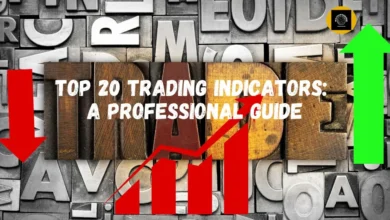Protecting Your Freelance Venture: Understanding Insurance for Marketing Consultants

As a freelance marketing consultant, your journey is an exhilarating blend of creativity, strategy, and entrepreneurship. However, in the dynamic landscape of the gig economy, it’s crucial to safeguard your venture against unforeseen challenges. In this comprehensive guide, we’ll explore the ins and outs of insurance for marketing consultants, helping you navigate the complexities and make informed decisions for the protection of your freelance business.
1. Introduction: Navigating the Freelance Landscape
Understanding the Unique Challenges of Freelance Marketing
Embarking on a freelance career in marketing is an exhilarating journey filled with possibilities, but it’s crucial to grasp the distinctive challenges that come with the territory. Freelance marketing consultants operate within a dynamic environment, balancing creativity, client expectations, and the ever-evolving landscape of digital marketing.
Navigating Income Variability: The Freelancer’s Financial Rollercoaster
One of the first challenges freelancers encounter is the irregularity of income. Unlike traditional employment, where a steady paycheck is the norm, freelancers face the ebb and flow of client projects. This unpredictability demands a strategic approach to financial management, emphasizing the need for a financial safety net to cushion against lean periods.
Absence of Employee Benefits: Crafting Your Own Compensation Package
Traditional employee benefits such as health insurance, retirement plans, and paid time off are luxuries that freelancers must forego. Navigating the absence of these benefits requires a proactive stance in creating a personalized compensation package. This involves understanding the intricacies of self-funded health insurance, planning for retirement, and incorporating these considerations into your freelance rates.
Isolation and Burnout: The Freelancer’s Struggle with Work-Life Balance
Freelancers often work in isolation, away from the camaraderie of an office environment. This isolation, coupled with the pressure to manage multiple clients and deadlines, can lead to burnout. Understanding the importance of work-life balance and implementing strategies to combat isolation is crucial for maintaining mental health and sustaining long-term success.
Client Relationship Dynamics: Juggling Expectations and Autonomy
Building and maintaining client relationships is a cornerstone of freelance success. However, freelancers must navigate the delicate balance between meeting client expectations and maintaining the autonomy that attracted them to freelancing in the first place. This section explores effective communication strategies, setting clear expectations, and managing client relationships for mutual success.
Market Competition: Standing Out in a Crowded Space
The freelance market, especially in marketing, is competitive. Standing out requires a unique blend of skills, a compelling personal brand, and a strategic marketing approach for your own services. Understanding how to differentiate yourself in a crowded marketplace is essential for attracting clients and building a sustainable freelance business.
Legal and Contractual Challenges: Navigating the Freelance Legal Landscape
Freelancers operate as independent businesses, and with that comes legal responsibilities. Understanding contract law, intellectual property rights, and the intricacies of freelance agreements is paramount. This section sheds light on common legal pitfalls and provides guidance on navigating the legal landscape to protect your interests.
2. Why Insurance Matters for Freelancers
Mitigating Financial Risks in the Gig Economy
Freelancers are the architects of their professional destinies, navigating a landscape characterized by independence and autonomy. While the gig economy offers unparalleled flexibility, it also exposes individuals to a spectrum of financial risks that can potentially jeopardize the very foundation of their freelance careers.
Protecting Your Income: Safeguarding Against Unforeseen Downturns
One of the primary reasons insurance is indispensable for freelancers is its role in protecting income. Unlike traditional employees with the security of a steady paycheck, freelancers bear the full weight of market fluctuations. Insurance acts as a safety net, providing financial support during lean periods caused by project delays, unexpected client cancellations, or economic downturns.
Liability Protection: Safeguarding Against Legal Challenges
Freelancers operate in a litigious world, and legal challenges can emerge unexpectedly. General liability insurance becomes a shield against potential lawsuits related to third-party injuries, property damage, or advertising mistakes. Without this protection, a single legal dispute could have severe financial consequences, potentially putting your entire freelance venture at risk.
Ensuring Continuity: Business Stability During Disruptions
Unexpected events, from natural disasters to unforeseen personal circumstances, can disrupt your freelance operations. Business interruption insurance becomes crucial in such scenarios, providing financial support to cover ongoing expenses during periods of involuntary downtime. This ensures that your freelance venture remains resilient in the face of unexpected disruptions.
Protecting Your Reputation: Professional Indemnity Insurance
In the realm of freelance consulting, your professional reputation is invaluable. Professional indemnity insurance safeguards you against claims arising from professional errors, omissions, or inadequate advice. This protection not only shields your finances but also preserves the trust and credibility you’ve built with clients over time.
Health and Well-being: A Personal Investment
Freelancers often neglect their health amid the demands of their work. However, personal well-being is a cornerstone of professional success. Health insurance tailored for freelancers ensures that you have access to quality healthcare without compromising your financial stability. This proactive approach not only secures your health but also safeguards your ability to meet client expectations consistently.
Risk Management: A Strategic Business Approach
Insurance for freelancers is not just a financial tool; it’s a strategic business approach. By actively managing risks through comprehensive insurance coverage, freelancers demonstrate their commitment to long-term business sustainability. This proactive stance can also enhance your professional image, signaling to clients that you prioritize stability and reliability.
3. Types of Insurance for Marketing Consultants
Tailoring Coverage to Your Unique Needs
Not all insurance policies are created equal, and as a marketing consultant, you have specific needs that demand targeted coverage. This section will provide an in-depth look at the various types of insurance available, helping you tailor your coverage to the nuances of your freelance work.
4. General Liability Insurance: Shielding Against Accidents
Protecting Your Business from Unintentional Harm
General liability insurance is the foundation of a freelancer’s risk management strategy. Here, we’ll break down the coverage, including protection against third-party bodily injury, property damage, and advertising mistakes. Understand how this insurance shields your reputation and assets from unintentional harm.
5. Professional Indemnity: Safeguarding Your Expertise
Insuring Against Professional Errors and Omissions
As a marketing consultant, your expertise is your most valuable asset. Professional indemnity insurance is designed to protect you from claims arising due to professional mistakes, oversights, or inadequate advice. Learn how this coverage ensures that a single oversight doesn’t jeopardize your entire freelance career.
6. Cyber Insurance: Defending Against Digital Threats
Securing Your Freelance Business in the Digital Age
In an era dominated by digital interactions, freelancers are increasingly vulnerable to cyber threats. This section explores the significance of cyber insurance, covering aspects like data breaches and cyberattacks. Understand how this insurance can safeguard your sensitive information and maintain client trust in the virtual realm.
7. Property Insurance: Covering Your Workspace
Ensuring Continuity with Physical Workspace Protection
For freelancers with dedicated workspaces, physical assets like equipment and furniture are vital. Property insurance steps in to protect these assets from unexpected events like theft, fire, or natural disasters. Discover how this coverage ensures the continuity of your freelance operations, even in the face of physical workspace challenges.
8. Business Interruption Insurance: Preparing for the Unexpected
Mitigating the Impact of Unforeseen Disruptions
Freelancers often operate in a precarious environment where unexpected disruptions can have a significant impact on income. Business interruption insurance becomes a crucial component, providing financial support during periods of downtime. Learn how this insurance mitigates the financial impact of unforeseen events, allowing your freelance venture to weather the storm.
9. Health Insurance for Freelancers: Prioritizing Your Well-being
Taking Care of Your Greatest Asset – You
In the gig economy, freelancers often neglect their health amid the hustle. This section emphasizes the importance of health insurance for freelancers, offering insights into tailored options that prioritize your well-being. Understand how investing in your health is not just a personal choice but a strategic move for the longevity of your freelance career.
10. Choosing the Right Insurance: A Step-by-Step Guide
Empowering Freelancers to Make Informed Decisions
Selecting the right insurance can be daunting, given the myriad of options available. This guide walks you through a step-by-step process, considering factors such as budget, business size, and specific industry risks. Empower yourself with the knowledge needed to make informed decisions that align with the unique demands of your freelance marketing consultancy.
Conclusion: Securing Your Freelance Future
Empower Your Business with Comprehensive Insurance
In conclusion, protecting your freelance venture goes beyond mere precaution – it’s an investment in the longevity and success of your business. By understanding the nuances of insurance for marketing consultants, you equip yourself with the tools to navigate uncertainties and focus on what you do best – delivering exceptional value to your clients. Remember, a secure business is a thriving business in the ever-evolving landscape of freelance marketing.
Here are some frequently asked questions (FAQs) about insurance for freelance marketing consultants:
1. Why do freelance marketing consultants need insurance?
Freelance marketing consultants need insurance to mitigate various risks associated with their work. It helps protect against financial losses due to unexpected events, legal challenges, and disruptions, providing a safety net for their business.
2. What types of insurance are essential for freelance marketing consultants?
Essential types of insurance for freelance marketing consultants include general liability insurance to cover accidents, professional indemnity insurance for protection against professional errors, cyber insurance for digital threats, property insurance for workspace protection, and health insurance for personal well-being.
3. How does general liability insurance benefit freelance marketing consultants?
General liability insurance benefits freelance marketing consultants by providing coverage for third-party bodily injury, property damage, and advertising mistakes. It safeguards their reputation and assets from unintentional harm, offering financial protection in case of legal disputes.
4. Why is professional indemnity insurance important for freelance marketing consultants?
Professional indemnity insurance is crucial for freelance marketing consultants as it protects against claims arising from professional mistakes, oversights, or inadequate advice. It preserves their professional reputation and financial stability in the face of potential legal challenges.
5. What role does cyber insurance play for freelance marketing consultants?
Cyber insurance is essential for freelance marketing consultants in the digital age. It helps defend against digital threats such as data breaches and cyberattacks, ensuring the security of sensitive information and maintaining client trust in virtual collaborations.
6. How does business interruption insurance support freelance marketing consultants?
Business interruption insurance provides financial support to freelance marketing consultants during periods of unexpected downtime. It covers ongoing expenses, ensuring business stability even when faced with disruptions such as natural disasters or unforeseen personal circumstances.
7. Is health insurance necessary for freelance marketing consultants?
Yes, health insurance is necessary for freelance marketing consultants. It ensures access to quality healthcare without compromising financial stability. Prioritizing personal well-being through health insurance contributes to sustained professional success.
8. How can freelancers choose the right insurance for their needs?
Freelancers can choose the right insurance by considering factors such as budget, business size, and specific industry risks. A step-by-step guide helps freelancers make informed decisions, tailoring their coverage to the unique demands of their freelance marketing consultancy.
9. Does insurance enhance the professional image of freelance marketing consultants?
Yes, insurance enhances the professional image of freelance marketing consultants. It signals a commitment to risk management, stability, and reliability. Clients are reassured by the proactive approach freelancers take in safeguarding their business and reputation.
10. How can freelance marketing consultants incorporate insurance into their overall business strategy?
Freelance marketing consultants can incorporate insurance into their business strategy by viewing it as a proactive risk management tool. It should be integrated into financial planning, client communications, and overall business decision-making to ensure long-term stability and success.




